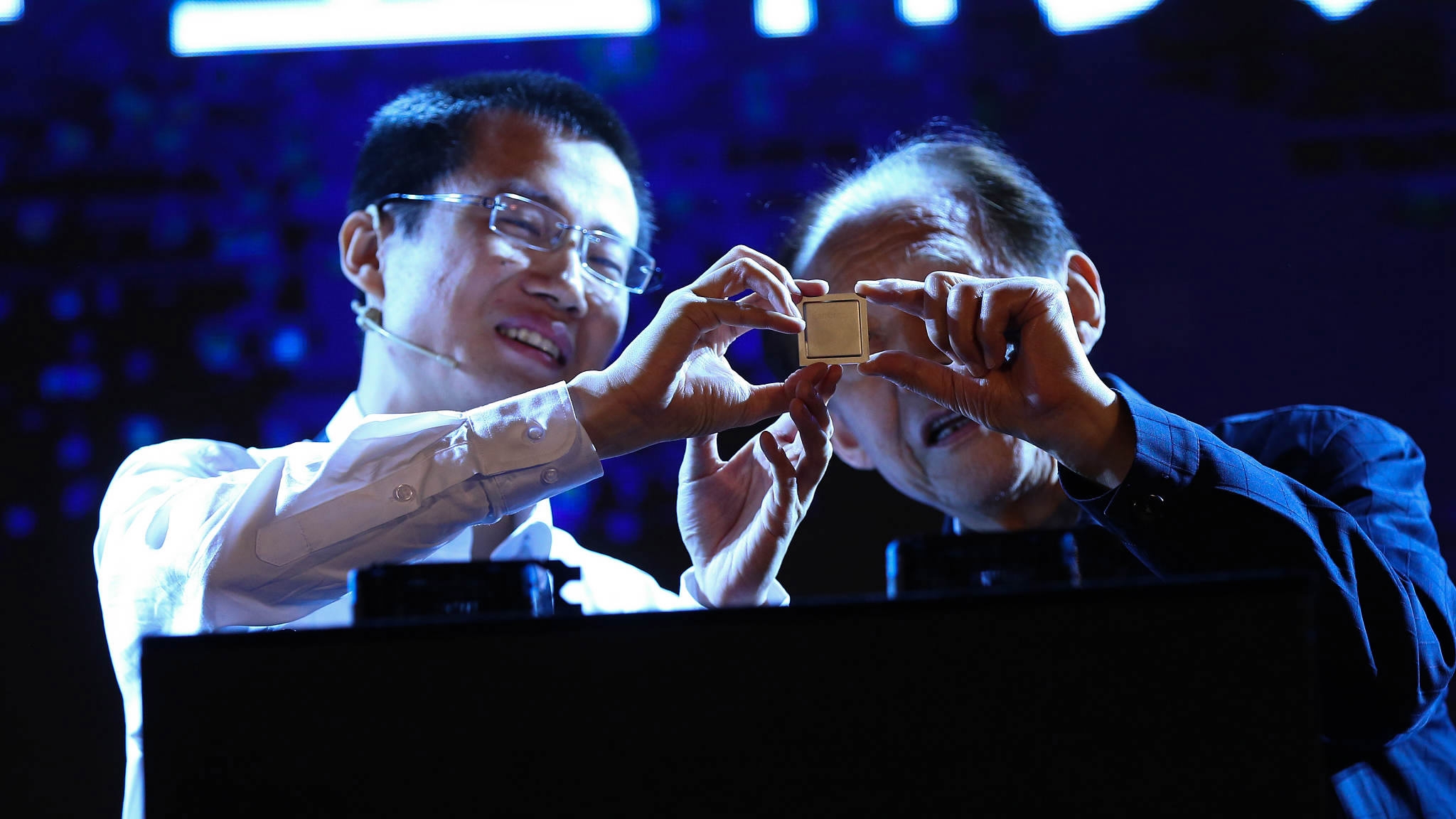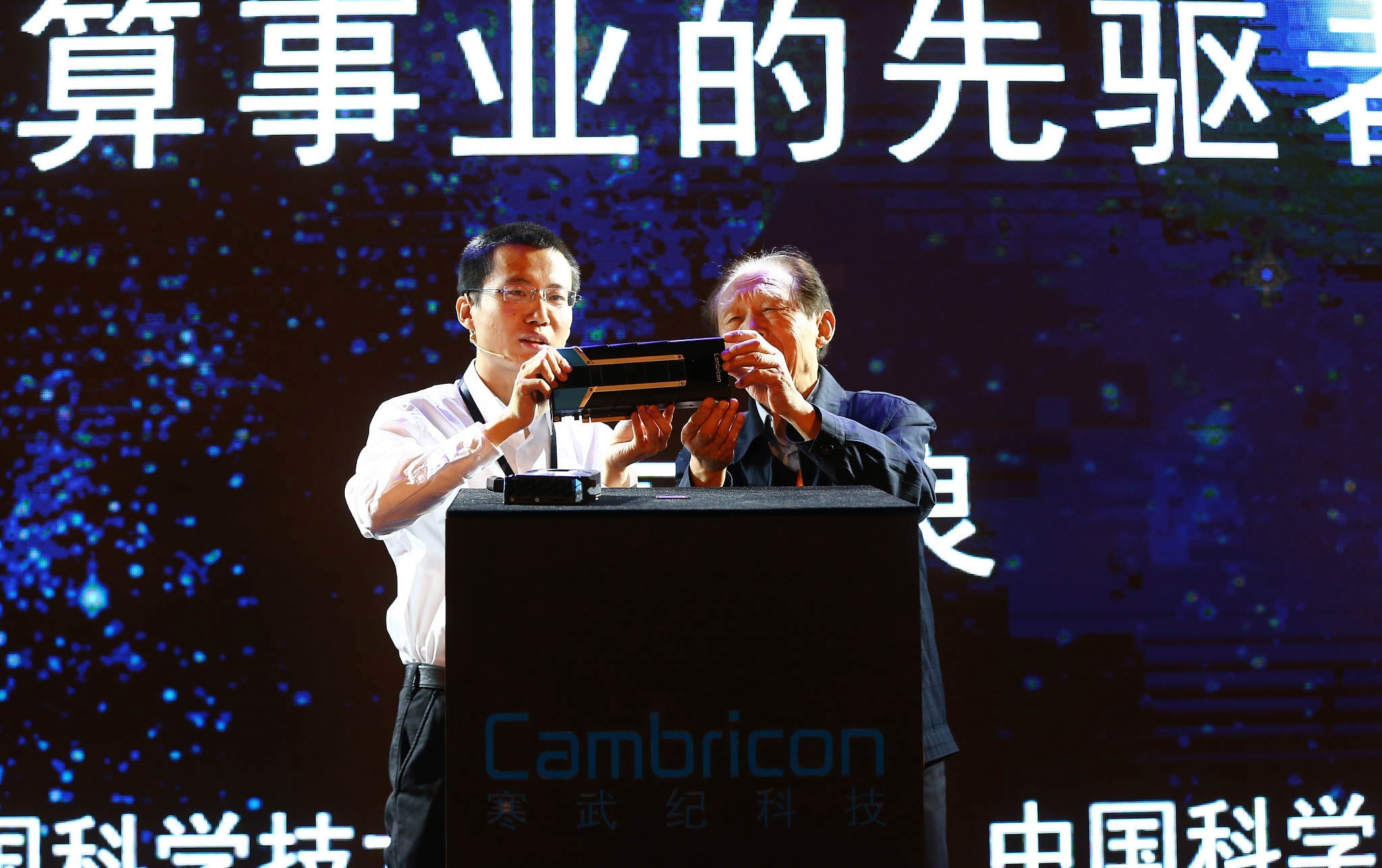
AI
20:59, 03-May-2018
Cambricon reveals China’s first server-based AI chip
CGTN

Artificial intelligence (AI) chip startup Cambricon Technologies launched a new generation of their core product in Shanghai on Thursday. Dubbed China’s first cloud AI chip, MLU100 can theoretically perform 166.4 trillion times of fixed-point arithmetic per second at maximum, with energy consumption of no more than 110 watts at peak.
The company's business partners Lenovo, Sugon and iFlytek all introduced products that work with the new processor chip at the same time. It will be mainly used in cloud computing, including servers and data centers.
Taking researchers almost two years to develop, MLU100 is able to work under balanced mode or high-performing mode, while the theoretical maximum speed under balanced mode can reach 128 trillion fixed-point arithmetic per second, consuming 80 watts of electricity.
Like other terminal processors in the series offered by Cambricon, the MLU100 is similar to its predecessors in that it supports all kinds of deep learning – neural networks that mimic human learning – and other classic computer learning algorithms. It can also process images, sound and big data at the cloud level under complex scenarios, such as with huge amounts of data and multiple tasks.

Cambricon's CEO Chen Tianshi (L) presents the new board with Chen Guoliang, an academician at the Chinese Academy of Sciences (CAS) at the launch event in Shanghai, May 3, 2018. /VCG Photo
Cambricon's CEO Chen Tianshi (L) presents the new board with Chen Guoliang, an academician at the Chinese Academy of Sciences (CAS) at the launch event in Shanghai, May 3, 2018. /VCG Photo
Known for its prominent voice recognition software, iFlytek showed in their test results that Cambricon’s new processor chip helped improve the company’s product, while saving five more times in power consumption than their rival's GPU Cloud. Its strong processing ability also enables smartphones to process more complicated machine learning algorithms, and voice recognition at the local terminal with 9.8 percent more accuracy than those equipped with traditional chips, thus greatly enhancing user experiences.
In 2016, Cambricon released China’s first AI chip, the 1A, claiming it the world’s first commercialized neural network processor chip. It has been used in millions of smart terminals such as Huawei Mate 10 and Honor 10 smartphones.
“There are a large number of deep learning applications today, but all of them are based on traditional generic processors such as Central Processing Unit (CPU) and Graphics Processing Unit (GPU),” said chief executive Chen Tianshi, a former researcher at Chinese Academy of Sciences' Institute of Computing Technology.
“For example, a few years ago Google used more than 10,000 CPUs to train a cat face recognition model, but neither CPUs nor GPUs are suitable for developing neural networks of a size similar to the human brain,” Chen added.
1068km

SITEMAP
Copyright © 2018 CGTN. Beijing ICP prepared NO.16065310-3
Copyright © 2018 CGTN. Beijing ICP prepared NO.16065310-3